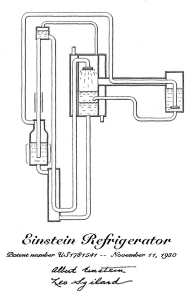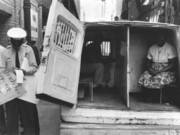
Former cabinet secretary Robert Reich says the Dow is tanking because (American) people are finally maxed out:
The central fact is this: Consumers in the real economy are coming to the end of their capacities to keep spending. They can’t take on any more debt. And with the costs of energy, food, and health insurance all soaring, they’re doing the only thing they can. They’re pulling in their belts. They’re leaving the malls. They’re not buying a new car or TV or anything else they can do without.
Of course I love the ‘what does… ‘ construction. So one set of players is fatally beleaguered, just as another set comes to grips with their own individual and collective irrationality. As another way to try to understand what was going on at the supposed high side, with the traders and fund managers, maybe an analysis of actual brain behavior is in order.
Because we assess risk and reward separately, and not as part of some unified Bayesian equation, we’re able to selectively inhibit those brain areas warning us of risk.
Something, whether it is the age of living on credit or the epoch of trading up on endless expansion, is coming to an end. As it appears that these are the means that transported us to the current enviromental, resource-depleted precipice, perhaps its not such a bad thing. If we had our choice, the party would have gone on forever, or at least until the liquor ran out. But it has run out, AND now we’re living too far from the pack-y to just run out and get some more. Will we sober up first before making a list of exactly what we need?
I’m not talking about things. Economies of scale, a living, human scale, would have to be the party of the first part – the goal of creating and recreating these is decidedly NOT pie in the sky. It’s all about reconfiguring transportation policy (transit!) and high-density land-use, spending priorities that can set this direction at the federal, state and local level, much as we once set our societal compass toward living apart, in far-flung pockets. Most every sour bet that is being called in right now is the result of the over-leveraging that was required for us to live out of scale with our actual means.
When we’re out of balance, we re-balance. This is necessarily going to mean people. living. closer. together. And yes, all kinds. Having said all this and it being Friday, I’ll leave it with L-F Celine:
As long as we’re young, we manage to find excuses for the stoniest indifference, the most blatant caddishness, we put them down to emotional eccentricity or some sort of romantic inexperience. But later on, when life shows us how much cunning, cruelty and malice are required, just to keep the body at ninety-eight point six, we catch on, we know the score, we begin to understand how much swinishness it takes to make up a past. Just take a look at yourself and the degree of rottenness you’ve come to. There’s no mystery about it, no more room for fairy tales; if you’ve lived this long, it’s because you’ve squashed any poetry you had in you. Life is keeping body and soul together.
Image: logs destined for saw mills stored along the Fraser River, Vancouver, BC




